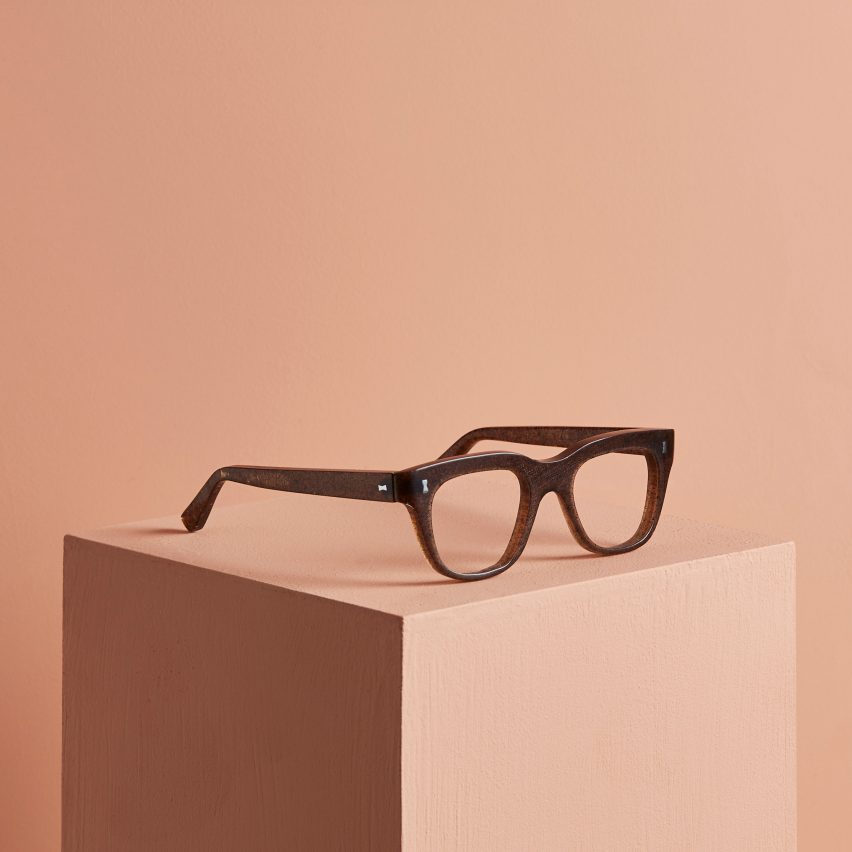Cubitts makes Redux glasses from waste materials including human hair and potatoes

Corn husks, wool and yoghurt pots are some of the materials used in a series of experimental spectacles by British eyewear brand Cubitts.
London-based Cubitts is exploring more sustainable forms of manufacturing with Redux, a collection of 10 one-off frames each made from a different waste material.
The range includes recycled plastics and bioplastics, with designs made using human hair, potatoes, mushrooms and old CDs.
The range includes frames made from corn starch and corn husks
"We've always lamented the notion that once something has no immediate use, it becomes waste," explained Cubitts founder Tom Broughton. "This is as true in the spectacles industry as it is for many others."
"While we've always offered repairs and favoured renewal over replacement, we wanted to go a step further and demonstrate that not only can broken spectacles be saved from the tip, but that the materials found in a tip can become new spectacles," he told Dezeen. One pair is made out of recycled yoghurt pots
Cubitts usually makes its frames from cellulose acetate. Although this is a semi-synthetic plastic, derived from tree pulp and cotton, its manufacture still has an environmental impact.
Broughton wanted to see if recycled materials could offer the same versatility.
"Any material used in spectacle making needs to be very versatile, with a wide range of properties," he explained.
Sheep's wool gives a textured effect to one design
"Not only do you ...
| -------------------------------- |
| Fraying grass roof tops Mil Centro restaurant in Peru's historical Sacred Valley |
|
|
Villa M by Pierattelli Architetture Modernizes 1950s Florence Estate
31-10-2024 07:22 - (
Architecture )
Kent Avenue Penthouse Merges Industrial and Minimalist Styles
31-10-2024 07:22 - (
Architecture )






